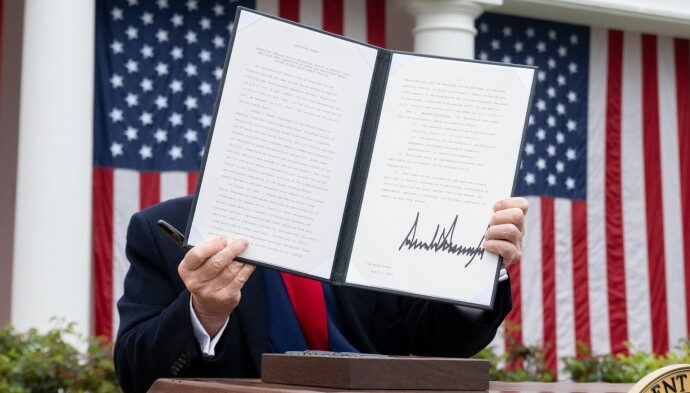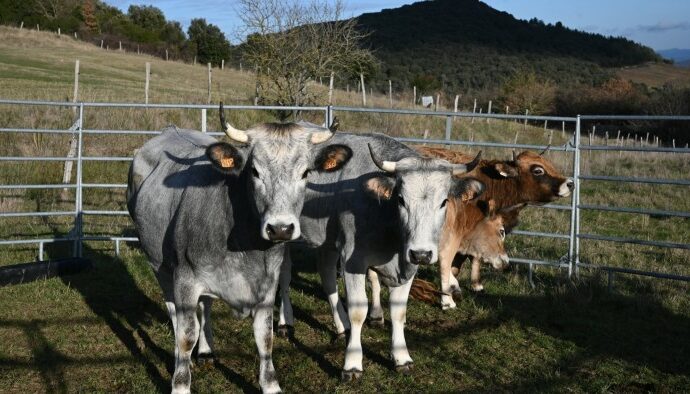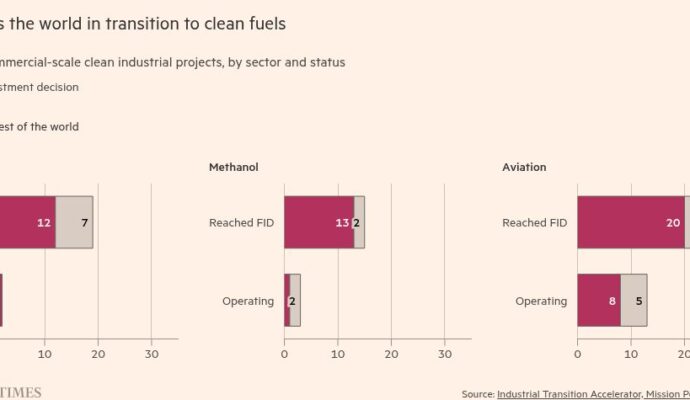“It’s like a first date,” says Sanaz Toossi about the UK premiere of her play English. “I might be about to meet the love of my life or I might go home crying.” English has already had several productions in the US and won her the 2023 Pulitzer Prize for drama — all the more remarkable considering it’s her debut play.
The play opens soon at the Royal Shakespeare Company in Stratford-upon-Avon, before a run at London’s Kiln Theatre, and Toossi is “slightly terrified” about how it will land in a country where the title isn’t just the name of the language but a marker of nationality too. “I know American audiences like the back of my hand,” she says, sitting in a dressing room in London at the end of a long day of rehearsals; her arms gesture widely but her words are slow and considered. “I know the assumptions that they’ll come in with about Middle Easterners. But I’m flying blind here.”
English is set in a classroom in Iran where there’s one rule: English only. There are ball-tossing games, show-and-tells, listening exercises and a lot of love for Richard Curtis romcoms (“Sometimes it takes two people to understand Hugh Grant,” says teacher Marjan, inviting a student to watch Notting Hill with her). It starts funny but drifts towards deep sadness as we realise that, for these characters, learning a second language is not a means to ordering coffee on holiday. Their lives depend on it.
Toossi, 32, wrote English while studying playwriting. It was 2017 and President Donald Trump had just signed an executive order that banned people from six Muslim-majority countries from entering the US. One of those countries was Iran.
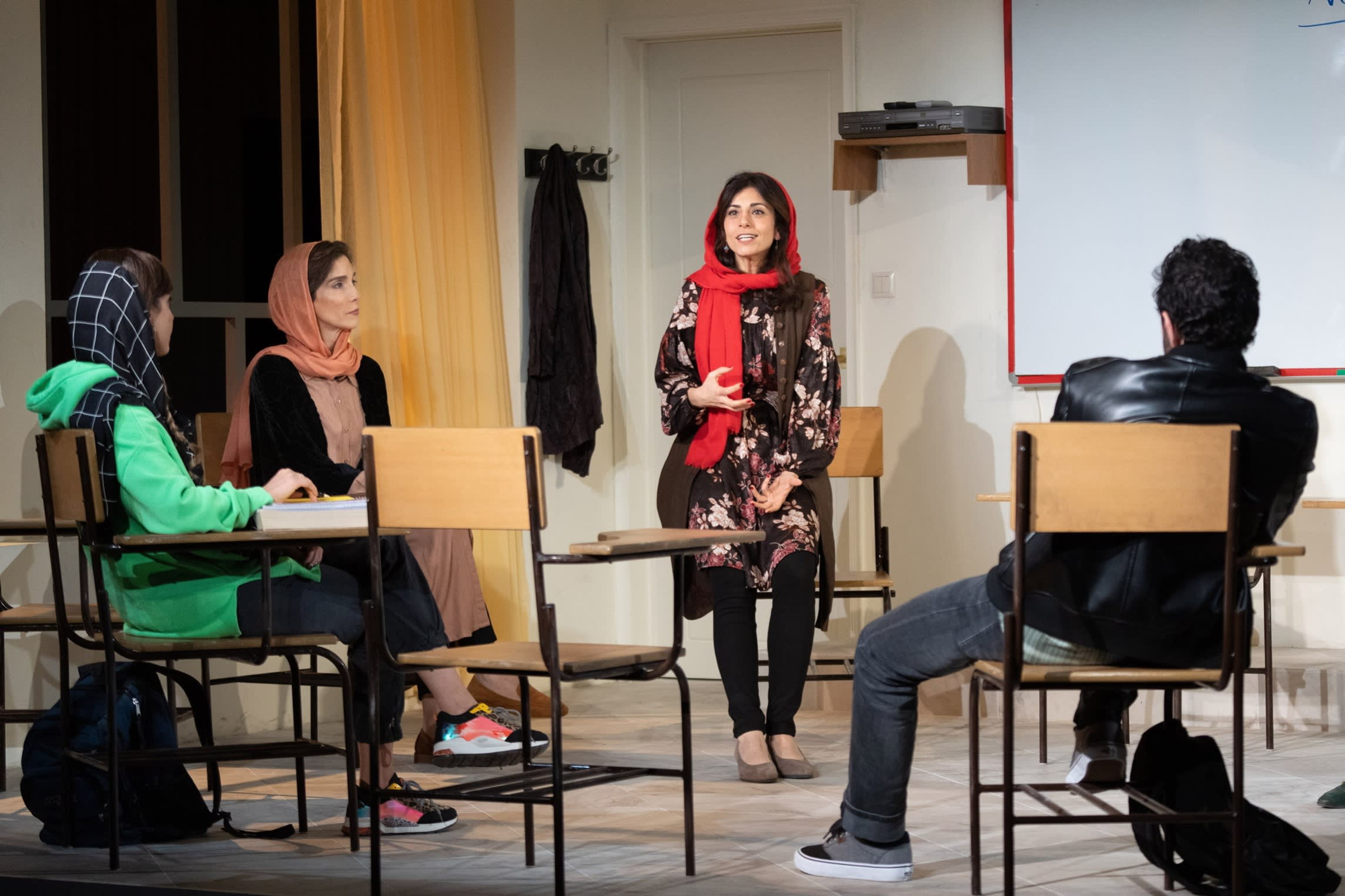
“It’s a play born of rage. I remember cashiers, teachers and sometimes my own friends making ungenerous assumptions about my family’s accented English. I knew what those assumptions were: dumb, silly, simple. Finding the right word is so hard-fought for so many of us. I’m confounded that anyone would ever judge anyone’s flawed English when they are, in fact, speaking a second language. That’s a sign of intellectual prowess, right?”
Her parents emigrated to the US from Iran, her father before the 1979 revolution and her mother afterwards. They settled in California and Toossi was born and raised in Orange County, home to one of the largest populations of Iranian people outside Iran. She was 10 years old when 9/11 happened. “It shaped so much of my artistry, because being Middle Eastern suddenly became [a matter of] survival.” It was a terrifying and confusing time. She faced abuse as well as unexpected kindness: a neighbour came to her door and told the family that if anyone treated them differently they should tell him immediately. “He was basically saying, ‘I know you didn’t do it.’ I was actually very moved by that.”
Although she didn’t recognise it at the time, her teenage years became a process of “keeping myself safe by being the right kind of American. As a girl that meant being feminine, giggly, pretty”. Now she is trying to unlearn that instinct. “I would love to stop apologising for being successful and maybe being smart.” She catches herself. “I just said ‘maybe’ smart. I’m so afraid of just saying that I’m smart. It’s this idea of making other people feel comfortable.”
At high school she was “not cool, very invisible”, and started acting with “theatre nerds”, but never harboured a desire to write. Instead, she completed a pre-law degree and was accepted into several law schools, but in the meantime had started writing “very secret plays”; all her furtiveness led to her mother thinking she was pregnant. A period of “existential fright” drew her to take a leap and apply to playwriting programmes. “I said to myself, If I don’t get in, I will go and be a happy lawyer. I will have a nice apartment, I will live well, and I will not look back.”
Instead, she became a happy playwright. She went to New York’s Tisch School for the Arts, where she studied under Suzan Lori-Parks (who won a Pulitzer in 2002) and Oskar Eustis, artistic director of the Public Theater; her adviser while writing English was Lucas Hnath (Dana H). “They were incredible teachers. That faculty changed my life,” she says. After a pandemic delay, English premiered at Atlantic Theater Company in New York in January 2022. Reviews were glowing and many noted how lightly Toossi tackled Iranian politics, keeping them outside the classroom throughout the play.
That’s deliberate: “I have a hard time hearing my play being called political, even though politics shape everything in the play.” She gives the impression she’d rather not discuss politics at all. Instead, “the things I would love to suggest are that Middle Easterners might be ordinary, gentle, worthy of consideration and tenderness. The fact I would use 90 minutes of a play to say that can only speak to the politics around us, but I also desire deeply to be seen as an artist of my own sensibilities. The tension between these two things, it’s hard for me to reconcile.”
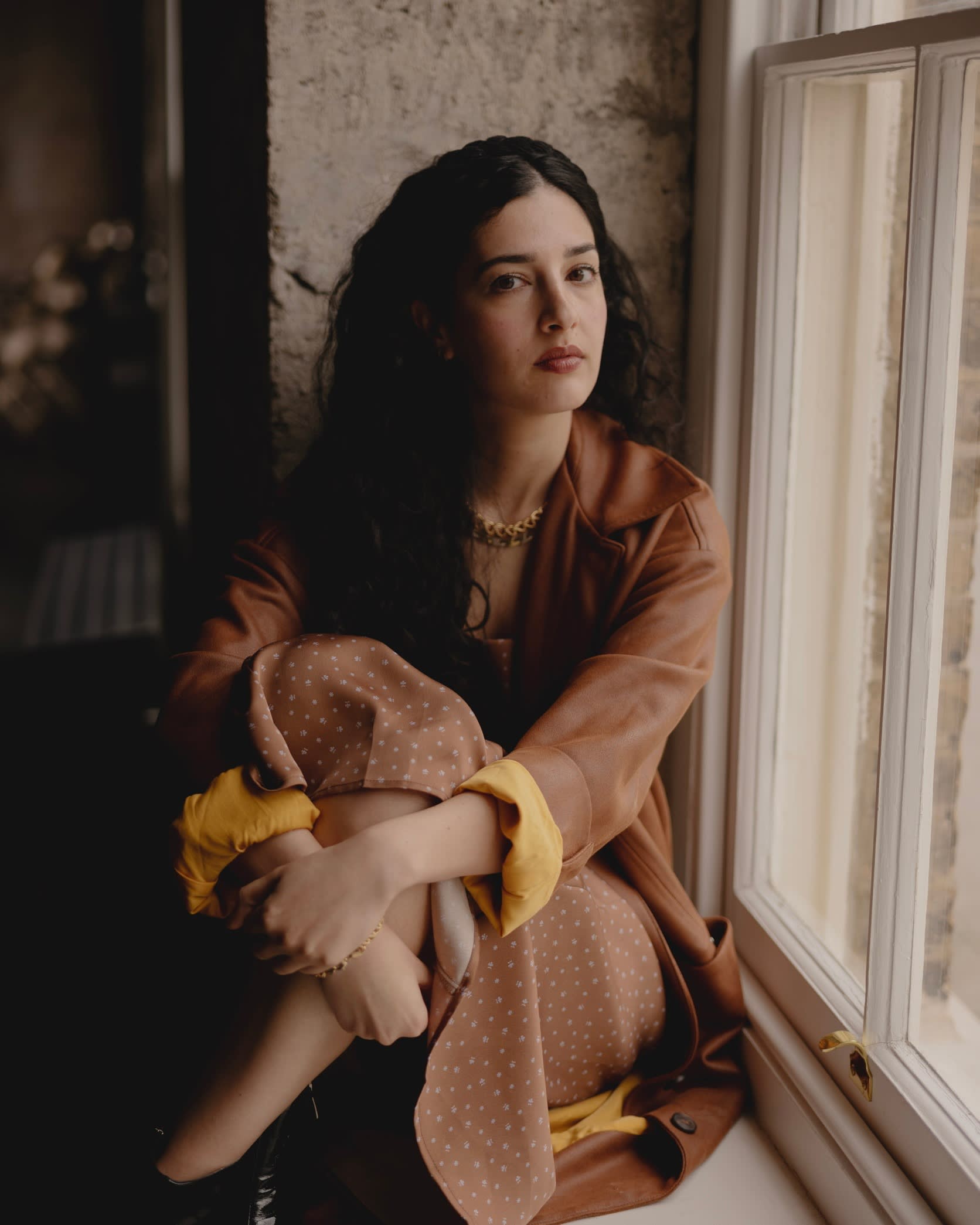
In fact, the most obvious thing about the play is that it’s very funny. “Shakira speaks English like if a goat speak English,” says one character as the class analyses the lyrics to “Whenever, Wherever”. But even that comes with its own problems for Toossi. “Some nights in New York we were getting the wrong kinds of laughs and it felt utterly harmful. I felt shame and responsibility because I am the reason those actors are on stage.”
Her second play, Wish You Were Here, which follows a group of women in Iran from 1978 to 1991, premiered in New York later in 2022. Then the awards started flooding in for English and Toossi was thrown. She was unable to write for a while. She made the mistake of reading a couple of positive reviews, “and those are the ones which do so much more damage. I really wanted to be all these great things people said I was. Time had to pass so I could forget the phrases I’d read”.
Sometimes, she admits, she imagines that parallel life where she’s a happy lawyer. For now, though, she’s writing again, aware that whatever comes next may not repeat the success of English. “I’m so lucky I got to do this once, but what I really need now is a body of work that I can stand behind. I just need to feel myself move. I want to know that I kept changing.”
The Other Place, Stratford-upon-Avon, May 9-June 1, rsc.org.uk; Kiln Theatre, London, June 5-29, kilntheatre.com
Find out about our latest stories first — follow FTWeekend on Instagram and X, and subscribe to our podcast Life and Art wherever you listen
